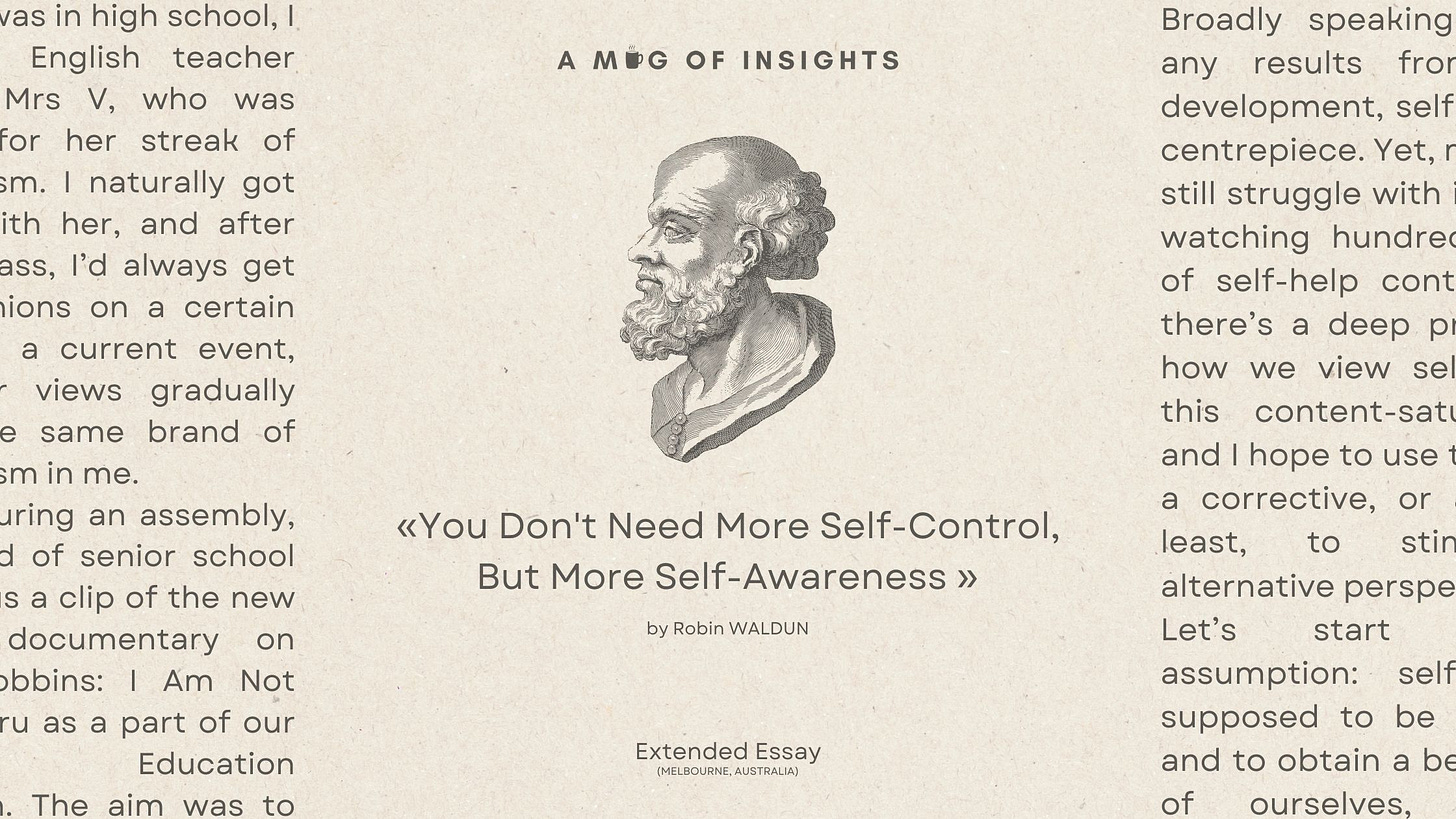You Don't Need More Self-Control, But More Self-Awareness
A better recipe for cultivating discipline from the Ancient Greeks
Note: This is a subscribers-only extended essay with a further reading list. As legends say, academics are overworked people who get paid the least (especially as a grad student). As a reader-supported newsletter, paid members let me keep the lights on while going down my research rabbit holes outside of the academy. If you like what I’m doing here, consider contributing to this newsletter and thank you for your support!
When I was in high school, I had an English teacher named Mrs V, who was known for her streak of skepticism. I naturally got along with her, and after every class, I’d always get her opinions on a certain book or a current event, and her views gradually bred the same brand of skepticism in me.
Once, during an assembly, the head of senior school played us a clip of the new Netflix documentary on Tony Robbins: I Am Not Your Guru as a part of our Positive Education program. The aim was to inspire us through self-help material, but I reserved my judgment. After the assembly, I asked Mrs. V what she thought of the video clip. She assumed her usual stance on things and passed a brief chuckle before saying:
“This positive education program is a religion without a God to me.”
The Key Problem: Advice as Doctrine
Broadly speaking, to obtain any results from personal development, self-control is a centrepiece. Yet, many people still struggle with it even after watching hundreds of hours of self-help content. I think there’s a deep problem with how we view self-control in this content-saturated era, and I hope to use this essay as a corrective, or at the very least, to stimulate an alternative perspective.
Let’s start with an assumption: self-control is supposed to be challenging, and to obtain a better version of ourselves, we must suppress and govern our lower desires. There’s a very firm distinction between a lower self and a higher self, and the base idea of self-control is an attempt to strengthen our abilities to combat our base desires through force, if necessary.
This is a simplistic way of viewing self-governance, yet many people fall prey to it. Even worse, in mainstream self-help culture, there seems to be a fetishization of hyper-disciplined individuals, and self-control itself seems to have turned into a means to its end.
But the problem with that clear-cut way of viewing self-control is its lack of versatility because, in some cases, it’s okay to indulge in pleasures. In other cases, a rigid self-suppression isn’t always the answer. The fundamental problem here isn’t a lack of willpower but the guilt associated with acts of discipline.
If self-control turns into a means to its end (be disciplined at all costs), there must be cases where one falls short of the ideal of discipline, and guilt arises when that happens. It could eventually get to a point where one’s solely motivated by guilt, which makes the person rigid, self-righteous, and prone to moralizing.
Moralization and guilt
Keep reading with a 7-day free trial
Subscribe to A Mug of Insights to keep reading this post and get 7 days of free access to the full post archives.



